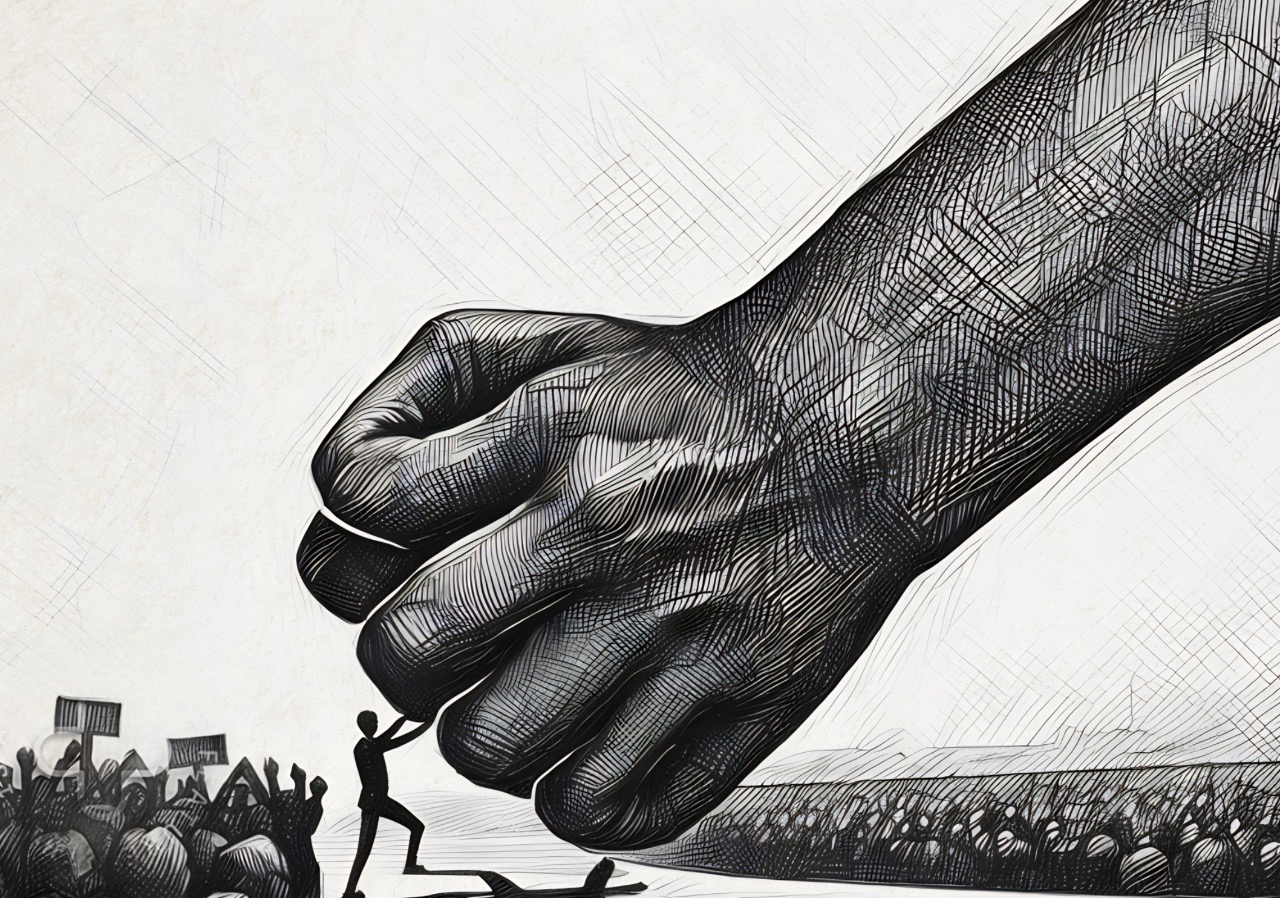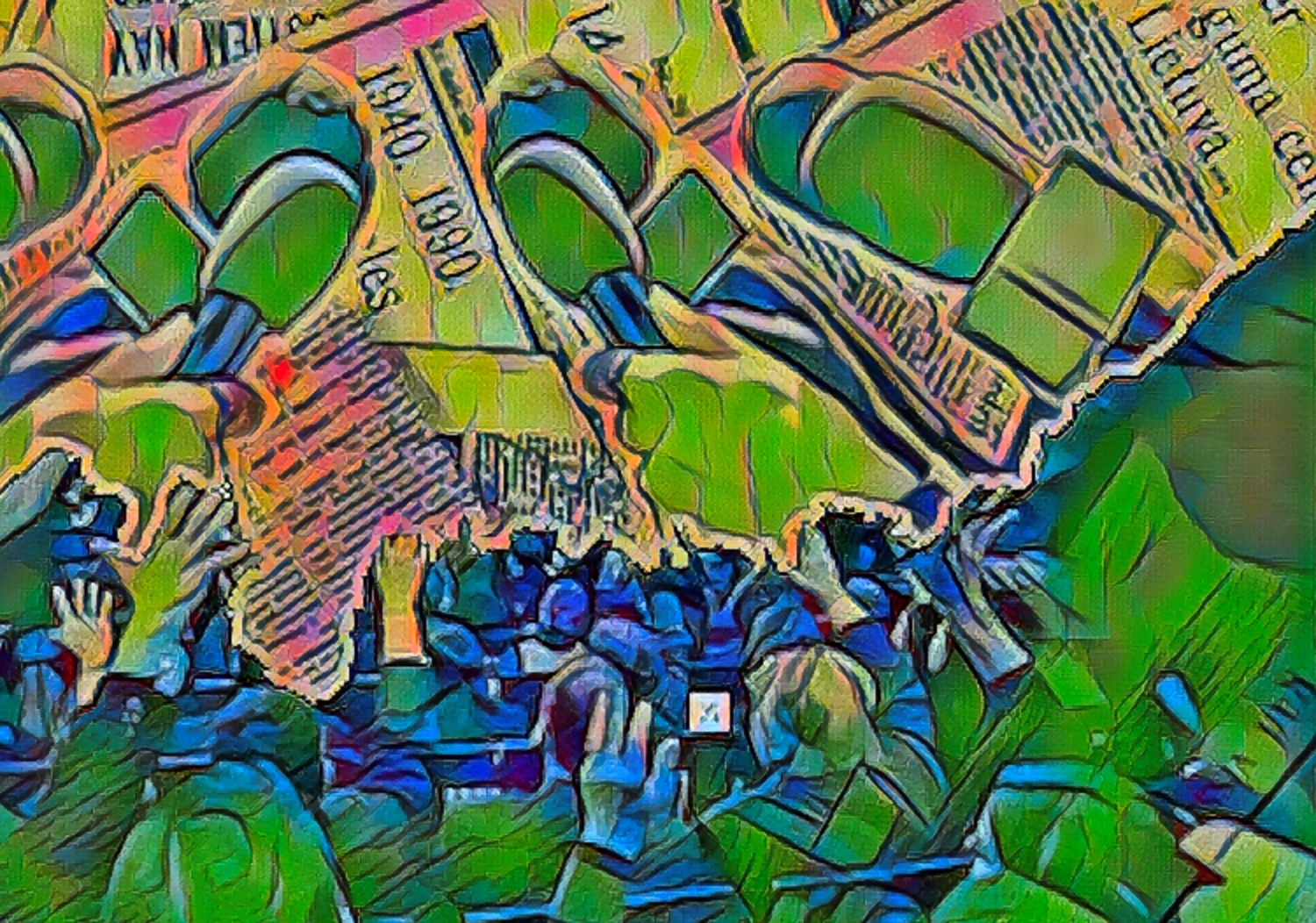Press Secretaries and Ministers: Do these prized postings yield any real benefits?

Recently, a story caught my attention on my Facebook feed with the headline: "Press Secretary to the Chief Adviser, Shafiqul Alam, awarded the status of Senior Secretary."
The piece quickly circulated, garnering rounds of congratulations for Shafiqul, who is a Facebook friend of mine. From the outpouring of praise, it seemed that attaining the status of senior secretary was seen as a significant honor.
This got me thinking: should the ultimate aspiration of a journalist be to climb the bureaucratic ladder and enjoy the perks that come with such titles?
Having worked with some of the world’s most distinguished journalists during my time in foreign media, I’ve had the privilege of collaborating with the likes of India’s Kuldeep Nayar, Khushwant Singh, Pulitzer Prize winners from The New York Times like John Burns and Seth Mydans, Steve Coll from The Washington Post, and Derek Brown from The Guardian.
I’ve often asked them, given their skill sets and accomplishments, whether they ever considered pursuing high-ranking positions in government.
Did they ever aim for political office? Without fail, their answer was always the same: “We came into journalism to practice journalism; the thought of any title or position never crossed our minds.”
John Burns, a two-time Pulitzer Prize winner, once said to me, “Arshad, we should never care about our own titles.” He added, “On our business cards, we should only have ‘Reporter’ written. Nothing more.”
I remember asking Kuldeep Nayar, “If you believe in life after death, which profession would you choose?” Without missing a beat, he replied, “I would want to be a journalist.”
I share these anecdotes to make a point: If someone truly claims to be a journalist, why would they be so eager to embrace the trappings of government titles or perks?
Shouldn’t the work itself — the pursuit of truth, the dedication to informing the public — be the only recognition that matters?
Forty-six years ago, when I first entered journalism, I noticed a troubling pattern in Bangladesh: many journalists were eager to align themselves with the government, using flattery and opportunism to secure personal benefits.
For them, the welfare of the country and its people was secondary. The core mission of journalism — to uncover the truth and hold the powerful accountable — had become obscured.
Instead, too many journalists used their platform to curry favor with the powerful, seeking perks and privileges for themselves and their families.
In turn, the powerful took advantage of this dynamic, using journalists to carry out corruption and misconduct. This toxic cycle has contributed to the sorry state of journalism in the country today.
But the powerful are equally complicit. Once in power, they often reward their preferred journalists — sometimes nothing more than their political pawns — with perks such as land plots, overseas trips, and, perhaps the most coveted of all, positions as Press Ministers in foreign missions.
Every government has its chosen cronies placed in these roles abroad.
When Dr. Yunus took charge of the Interim Government, I had hoped he would break from this tradition. Unfortunately, it seems he is following the same path.
Now, some may argue, “Isn’t there a need for Press Ministers in foreign missions? Those who lost their positions during Hasina’s rule deserve a chance to work somewhere.”
But my question is this: Why should journalists be appointed to such positions in the first place? Let's set aside America and the UK for now. Even in neighboring India, this is not the norm.
These roles are generally filled by professional diplomats and seasoned personnel from the Information Service, not by journalists.
Personally, I believe that if this can be ensured in Bangladesh as well, it would lead to significant development in the journalism profession.
Journalists would then focus on enhancing their professional skills rather than chasing after government positions, and work for the welfare of the common people of the country.

Avoiding the lure and
perks
Let me share a personal experience from 1987, during General Ershad's rule.
One morning, I received a call from the Information Ministry informing me that Secretary Nurunnabi Chowdhury (CSP-1960) wanted to meet me. Immediately, I suspected that the issue at hand was related to the New York Times report I had sent the previous night.
I didn’t know him personally, so I decided to reach out to his close batchmate, Mokammel Haque, whom I affectionately called Bhaijan.
As soon as I entered Bhaijan’s office, he looked at me and said, "You must have done something wrong, or you wouldn't be here." I told him, "Your batchmate called me."
Bhaijan, who was the Secretary of the Ministry of Land at the time, asked me to sit and assured me he’d be right back. About half an hour later, he returned and said, "What have you done? You should be in jail by now. Go quickly, Nurunnabi is waiting for you."
When we met, Nurunnabi said, "Arshad Sahib, I don't know you personally, but I’ve seen your writings in foreign newspapers. I just want to tell you to keep doing what you’re doing." He also mentioned, "General Latif will call you."
True to his word, shortly afterward, I received a call from the then highly influential DGFI chief, General Latif, who asked me to come to his office.
When I arrived, he reminded me, "Don’t forget that martial law is in place in this country." He then told me that the President wanted to meet me at Bangabhaban.
I asked, "For what reason?" He responded, "We need a journalist like you. We want to make you the Communication Advisor to the President’s office."
I told him I had no interest in such a position, as I didn’t believe I was qualified for it. In response, he offered me ten kathas of land in Baridhara. I declined, saying I had no need for it. He then asked, "What do you want?" I replied, "I want to be left alone to work as a journalist without harassment."
To my surprise, he suddenly stood up, and I saw tears in his eyes. He embraced me and said, "Arshad, I thought there was no future in this country. But now I feel there is hope because people like you still exist — people who don’t want to meet the President and don’t want anything."
He added, "Many senior secretaries and ministers often ask me to arrange exclusive meetings with the President." I simply said, "I am nobody significant. The money I earn working with foreign newspapers is enough for me."
General Latif and Nurunnabi Chowdhury are still alive, and anyone who wishes to verify this account can do so.

Press Ministers–what are the
responsibilities?
Now, let’s come to the appointments of Press Ministers to our embassies. Over the past 30-40 years, I have been familiar with most of the individuals who have held these positions.
Unfortunately, their appointments were primarily based on party affiliation rather than qualifications or merit. The more pressing question, however, is: once these individuals are appointed, what do they actually do in these roles?
As I mentioned earlier, they rarely have any meaningful duties. Allow me to share a few experiences of those who served as Press Ministers in Washington, London, and Delhi.
Let’s begin with Washington, probably around 2003. At the time, I was working at The Washington Post. One morning, just before noon, I received a phone call. A gentleman on the other end asked, “Are you Arshad Mahmud?” After confirming my identity, I remarked, “From your accent, it sounds like you might be Bangladeshi.” He confirmed, “Yes, I’m from Bangladesh.”
He then introduced himself as the Private Secretary to the Bangladesh Ambassador and said, “The Ambassador wants to meet you.” I asked, “What’s the reason for the meeting?” and explained that I would not be available for at least four to six weeks.
He said he would check with the Ambassador and call me back. The next day, he rang again and explained that the Ambassador just wanted to meet and get to know me, as they weren’t sure if any Bangladeshi had ever worked at The Washington Post.
Honestly, I had no strong desire to meet him, but about a month later, I agreed to the meeting. After a few pleasantries, the Ambassador said somewhat accusingly, “I wanted to meet you, and you asked why.” I replied, “Of course, I needed to know why. A journalist from The Washington Post is busy, and I never requested a meeting with you.”
He then said, “You are working for a leading newspaper in this country, and I need a little help from you.” I asked, “How can I assist?”
He responded, “Three months ago, I wrote a letter to the editor of The Washington Post, requesting a meeting, but I haven’t received any response. Can you do something about that?”
I told him, “I cannot help with that.” I added, “There are 184 ambassadors in Washington, and everyone wants to meet the editor. Leonard Downey, the editor at the time, was a very busy man and had to prioritize whom he met with.” I continued, “If you were the Ambassador of a major country like China, Russia, Germany, or the UK, he might have considered meeting with you. But even then, if you met with him, you would likely just ask him to cover your Prime Minister, which he wouldn’t be able to do. That’s probably why he hasn’t responded to your letter.” At that time, the Prime Minister was Khaleda Zia.
I also told him, “You might be an important person in Bangladesh, but here, you’re just another diplomat. If you accept that reality, it will be easier for you.” After hearing this, he said, “Arshad Sahib, I’m just thinking now why I never met you earlier.”
I left after about an hour, and soon after, the Press Minister, Syed Kamal Uddin, called me. Kamal Bhai was an old acquaintance and a close friend.
He said, “My ambassador has become a big fan of yours. You really impressed him. He told me to stay in regular contact with you.” A few days later, Kamal Bhai confided in me, “Before coming here, I didn’t realize how difficult it would be to work here. As a Press Minister, I can’t even get an appointment with anyone.” I replied, “Kamal Bhai, you worked at Far Eastern Economic Review for a long time. You should have known better.”
Eventually, he mentioned he might need to return to Bangladesh. I said to him, “Kamal Bhai, I don’t understand why you took this job. I told him, ‘General Ershad wanted to put me in jail, but he gave you a plot in Dhanmondi. Khaleda Zia forced me to leave the country with threats of crossfire, but she made you the Press Minister and sent you to Washington.’” I continued, “Now think about it. What are the consequences of accepting these perks?”
He passed away not long ago.

The futile exercise of the Press
Minister’s role
Two other individuals appointed during Sheikh Hasina’s tenure had similar experiences.
One of them was my acquaintance, Akhtar, who tragically passed away from a heart attack shortly after arriving in Washington.
I remember having a meal with him once at the Washington Press Club. He was a kind, polite person, but he seemed confused about his role. He said to me, "Brother, I just couldn’t understand what my job was here." I asked, "Why did you take this position?"
He explained, "At the time, the Prime Minister’s Press Secretary, Abul Kalam Azad, saw me at the Press Club and asked, 'Will you be going to Washington?' I said, 'I can go.' And then, shortly after, he passed away."
About four years ago, I went to our embassy for a personal matter and asked the receptionist if I could meet the Press Minister if he was available. The receptionist promptly told me to head upstairs.
When I entered the Press Minister’s office, I found Shamim from UNB, a younger colleague and close friend of mine.
I greeted him, saying, "I knew you as a good journalist. I didn’t realize you’d joined this job here." Shamim seemed a bit uncomfortable and replied, "It’s been quite a while now." Then, almost casually, he told me, "Arshad Bhai, I don’t really have much work here."
He then shared an incident with me. A few days earlier, he had gone to meet the Foreign Editor of The Washington Post, accompanied by Ambassador Mohammad Ziauddin.
As you can imagine, journalists are always busy, so the Foreign Editor quickly asked them to get to the point. Shamim and Ziauddin said that if The Washington Post wanted to send a reporter to Bangladesh for coverage, they would take care of the expenses.
The Foreign Editor, visibly irritated, told them that such invitations were not accepted, as it was the responsibility of their South Asia correspondent to decide how Bangladesh would be covered.
He suggested they contact the correspondent in Delhi. After that, the Foreign Editor stood up, signaling the meeting’s end.
This incident clearly illustrates that the Ambassador and Press Minister had little understanding of how major newspapers like The Washington Post operate.
In addition to my work with The New York Times and The Washington Post, I have also contributed to The Guardian in London, as well as India Today and Outlook in Delhi.
As a result, I’ve had the opportunity to visit these cities multiple times.
During my visits, I met with several Press Ministers in both places. One such meeting took place during Sheikh Hasina's tenure.
I’ve never been fond of partisan journalists, so I rarely made an effort to meet them. However, for one close friend, I made an exception.
I visited him once and asked, "How are you?" He replied, "Not so well." I said, "Why? You live in a government house, drive a car—everything’s provided for you." He responded, "Honestly, I just can’t understand it. We don’t have any respect here."
He then shared a story. He had invited the Foreign Editor of The Times of London to dinner at his home. The editor, initially unsure due to a busy schedule, eventually agreed after much insistence.
However, the day before the dinner, the editor called to cancel, citing a special situation. My friend was disappointed as he had invited several people from the Bangladesh embassy for the occasion.
He replied, "I arranged this dinner just for you. If you can suggest another date, I’ll gladly reschedule and inform the others."
The Foreign Editor promised to let him know but, regrettably, never did. My friend concluded, "Arshad, after this experience, I’ve come to realize how dishonorable these jobs can be."

Journalist’s unwelcome territory of
bureaucracy
Let me tell you another story, this time about the late Gias Kamal Chowdhury, a well-known journalist. Gias Bhai was incredibly polite and decent, and we had a strong personal bond.
He supported the BNP, and when Khaleda Zia came to power, he was posted to London—not as the Press Minister, but as Economic Minister.
This role was typically reserved for the administration cadre, which caused some discontent among the officials.
Mohammad Asadullah, the head of the administration cadre association, along with a few others, met with Khaleda Zia to express their objections, but she remained firm in her decision.
Gias Bhai once told me about the intense non-cooperation he faced at the London mission, which made it impossible for him to work effectively.
He specifically blamed Munshi Faiz, a 1979 batch councilor. Despite the Prime Minister’s backing, the situation became untenable, and Gias Bhai eventually returned home, though I can’t recall if he completed his full term.
I told him, "You were a renowned journalist; why did you accept this position? Had you not taken it, you wouldn’t have faced this humiliation. You’ve lost the respect and credibility you once had." He replied, "Honestly, Arshad, I didn’t realize it would come to this."
Now, let me share a few words about some Press Ministers appointed in Delhi. During Sheikh Hasina's first term, Atiqur Rahman, a journalist from Bangladesh Observer, was posted there.
Atiq Bhai was a gentleman, though he was known to be affiliated with the Awami League. In 1997 or 1998, I traveled to India with a journalist delegation, and upon arriving in Delhi, Atiq Bhai came to meet us.
I asked, "How are you? How’s life here?" He replied, "I’m doing well. I drive around with a diplomatic license plate, attend parties."
At that time, one of our colleagues, Ehsanul Karim Helal, who later became the Prime Minister’s Press Secretary, was posted as the BSS correspondent.
When I met Helal Bhai, he made some negative comments about Atiq Bhai. I asked, "You both come from the same background. How did your relationship turn sour?"
He replied, "I don’t get a car from BSS, but he drives around in a car and lives in a free house." I could see that it was all about the perks and privileges, so I didn’t push the conversation further.
The second time I met Atiq Bhai, I asked, "How is your work as Press Minister going?" He replied, "I occasionally invite Indian journalists over for professional discussions. But there's one issue—these people drink a lot, and when they come to my house, they end up finishing all my liquor. But since it's government money, I don't really mind!"
During Sheikh Hasina's second or third term, I reached out to the Press Minister [who was very junior to me] in Delhi while I was in Washington.
At the time, I was serving as the Principal Editor for a Pentagon website and needed to recruit 2 or 3 journalists in Delhi. I asked if he could suggest any names or provide me with phone numbers or email addresses of people I might know.
He said he would try but quickly changed the topic, saying, "Arshad Bhai, I’m really enjoying my time here. I live in a big government-provided house, and I also have a full-time car with a driver. I travel around quite a bit."
He went on to mention that here, you don’t need to go to a laundromat to get your pants, shirts, or suits washed or ironed. A van comes by, picks them up, and returns them freshly cleaned and pressed right at your doorstep.
I then reminded him that I was expecting the contact numbers I had asked for, but he never followed up with me.
Later, I couldn’t help but wonder how someone in such a prestigious diplomatic role, like a Press Minister, could be working in such a manner.
I urge Dr. Yunus to reconsider assigning journalists to such controversial roles. Let them continue their work independently in journalism, as this would be a true service to the country.
Furthermore, when appointing Press Ministers or Press Counselors abroad, I recommend considering candidates from the Information Service rather than journalists themselves.
I firmly believe that no government should compromise journalism with temptations and perks.
If journalism and the judiciary are not allowed to function independently and impartially, the future of the country will be bleak. The current state of affairs is a direct result of the politicization of these two institutions, making them subordinate to those in power.
I trust Dr. Yunus will give this matter the serious thought it deserves.
—
Arshad Mahmud is a senior journalist. He covered Bangladesh for the New York Times for a long time

